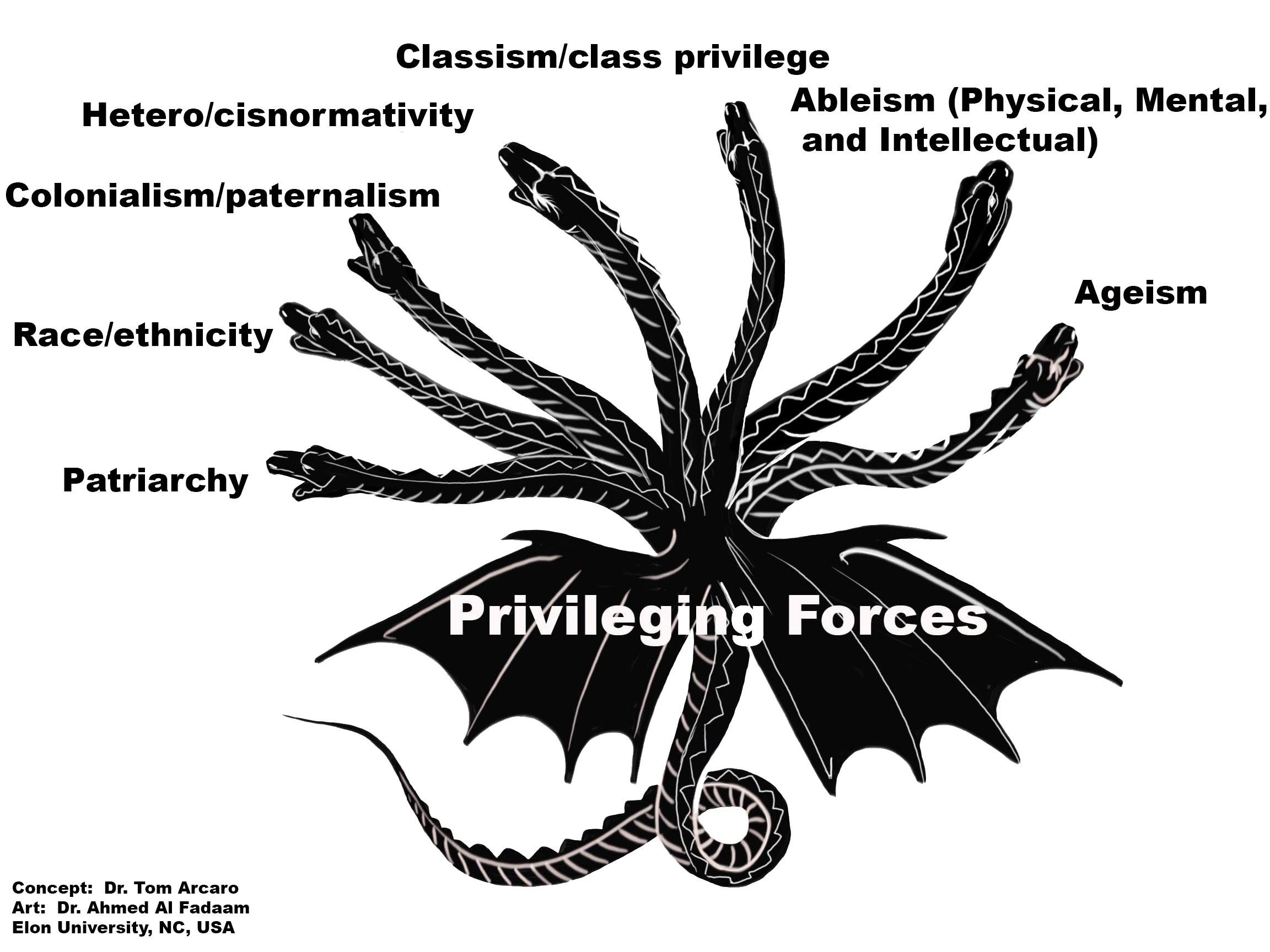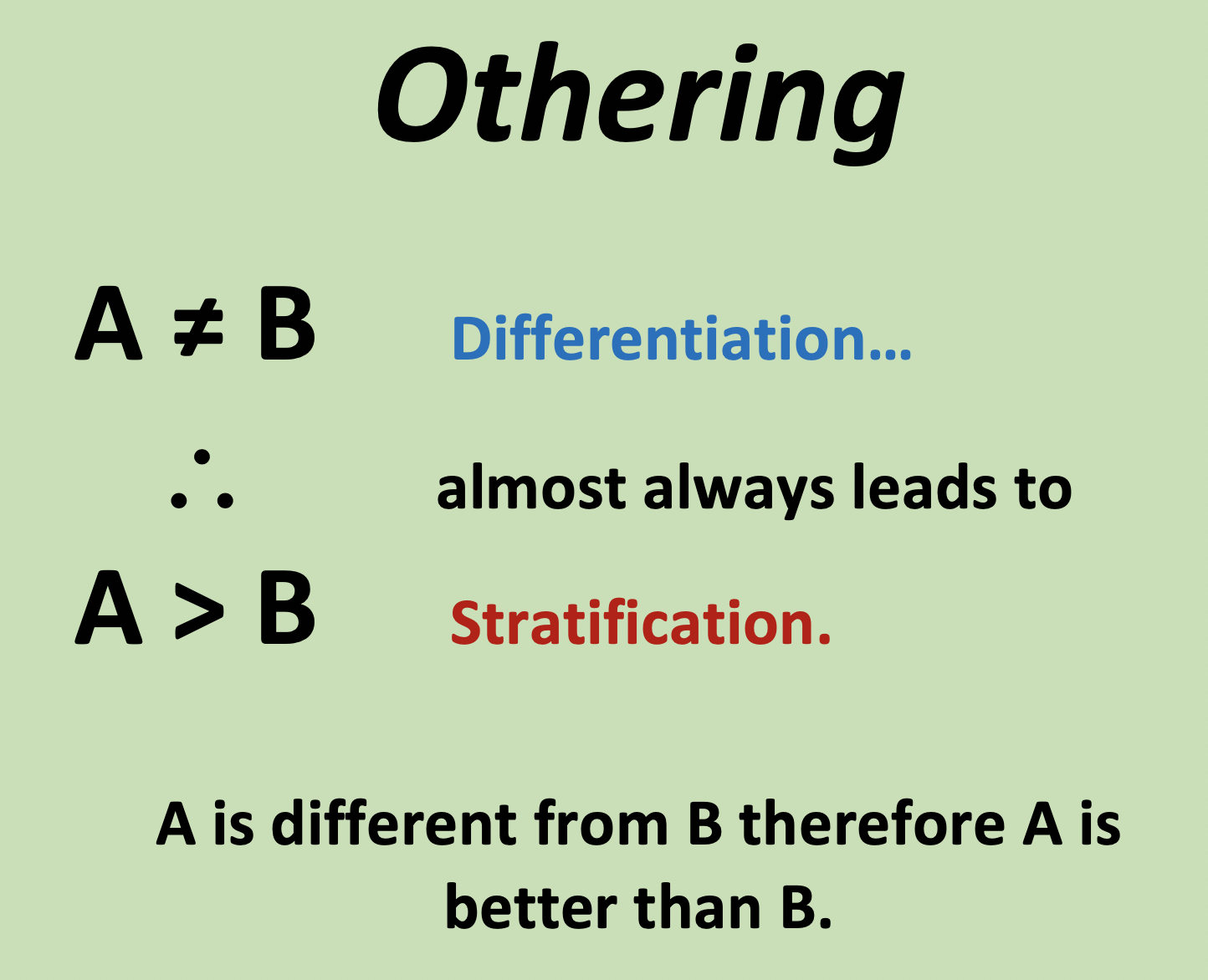“…humanitarian action is top-down, externally driven, and relatively rigid process that allows little space for local participation beyond formalistic consultation. Much of what happens escapes local scrutiny and control. The system is viewed as inflexible, arrogant, and culturally insensitive. This is sometimes exacerbated by inappropriate personal behavior, conspicuous consumption, and other manifestations of the ‘white car syndrome.’ Never far from the surface are the perceptions that the aid system does not deliver on expectations and is ‘corrupted’ by the long chain of intermediaries between distant capitals and would-be beneficiaries.” (p. 187)
“Humanitarianism started off as a powerful discourse; now it is a discourse of power, both at the international and at the community level.” (p. 190)
–Antonio Donini “Humanitarianism, Perceptions, and Power” in In the Eyes of Others (Abu Sada, editor; 2012)
Privileging forces
Background
Earlier this month I was honored to be among the 200+ gathered in Berlin for the 32nd annual meeting of the Active Learning Network for Accountability and Performance (ALNAP). Established in 1997, ALNAP is an international sector wide humanitarian network made up of representatives from various related humanitarian organizations and experts who do research in this area.
I served as one of the facilitators in a ‘jigsaw” exercise organized to help the participants link the conference theme of ‘relevance’ to the enduring historical patter ns and norms related to patriarchy, race and privilege, colonialism and paternalism, heteronormativity and cisgendernormativity, and classism/ class privilege.
ns and norms related to patriarchy, race and privilege, colonialism and paternalism, heteronormativity and cisgendernormativity, and classism/ class privilege.
Privileging forces
My part was to briefly introduce and frame the topics for the breakout sessions related to these five ‘privileging forces’. In the days before the conference I posted a (long) blog post where I discuss relevance and make the observation that each of these five ‘privileging forces’ have the same origin, namely the universal phenomena of ‘othering’. In short, whenever A is different from B and an asymmetry of power exists, there is a tendency for A to assert dominance over B. Stated alternately, social differentiation tends to degrade into social stratification.
days before the conference I posted a (long) blog post where I discuss relevance and make the observation that each of these five ‘privileging forces’ have the same origin, namely the universal phenomena of ‘othering’. In short, whenever A is different from B and an asymmetry of power exists, there is a tendency for A to assert dominance over B. Stated alternately, social differentiation tends to degrade into social stratification.
In preparation for the conference, I worked with a close friend and colleague (artist and journalist Dr. Ahmed Al Fadaam) to create an illustration which would add depth to my spoken words. As I noted in Berlin,
“A Hydra, the many-headed serpent in Greek mythology, is a good analogy here for ‘privileging forces’. According to mythology, this dragon-like beast is immortal, and when one of its heads is cut off two more grow in its place. So it is with privileging forces, an ever-present demon humanitarians must fight that has many toxic manifestations. As humanitarians, this epic battle must be fought first in the service of relevance, that is, (to quote from Sophia
Swithern’s ALNAP background paper), ‘… in line with the priority needs of affected people.’
Finally, perhaps we should keep in mind that though fighting these demons individually is a natural impulse, perhaps the body of the Hydra should be attacked most vigorously. I am confident you will find the facilitators of the breakout sessions you are soon to attend are mindful that these privileging forces are all interconnected and even at times create a toxic synergy.”
Common process
The idea of a common process underlying these forces comes from an exercise I have done for many years in my classroom when discussing the phenomena of racism. I give this definition:
“Racism is an ideology of domination and subordination based on the assumption of biological and/or cultural differences between groups and the use of this assumption to legitimize and/or rationalize the inferior or unequal treatment of one group by another.”
I then ask for a definition of sexism, and more astute students will catch on, saying that “Sexism is an ideology of domination and subordination based on the assumption of biological and/or cultural differences between males and females and the use of this assumption to legitimize and/or rationalize the inferior or  unequal treatment of females by males.” Next I’ll ask for a definition of ageism, or classism, and get similar answers (e.g., Classism is an ideology of domination and subordination based on the assumption of biological and/or cultural differences of the poor and the use of this assumption to legitimize and/or rationalize the inferior or unequal treatment of the poor by the rich.”). The point is clear; all these ‘isms’ are based on the inexorable process of othering.
unequal treatment of females by males.” Next I’ll ask for a definition of ageism, or classism, and get similar answers (e.g., Classism is an ideology of domination and subordination based on the assumption of biological and/or cultural differences of the poor and the use of this assumption to legitimize and/or rationalize the inferior or unequal treatment of the poor by the rich.”). The point is clear; all these ‘isms’ are based on the inexorable process of othering.
Theory wonk observation
In Civilization and Its Discontents Freud asserts Homo homini lupus -man is wolf to man- and goes on to say that,
“The advantage which a comparatively small cultural group offers of allowing this instinct an outlet in the form of hostility against intruders is not to be despised. It is always possible to bind together a considerable number of people in love, so long as there are other people left over to receive the manifestations of their aggressiveness. …I gave this phenomenon the name of “the narcissism of minor differences.” (Source: Sigmund Freud, Civilization and its Discontents, trans. and ed., James Strachey (New York: W. W. Norton, 1961), pp. 58-63.)
Decades later social critic Erich Fromm extends Freuds work in his book The Sane Society, making using of the phrase ‘the lie of civilization’, arguing that,
“Spinoza formulated the problem of the socially patterned defect very clearly. He says: ‘Many people are seized by one and the same affect with great consistency. All his senses are so affected by one object that he believes this object to be present even when it is not. If this happens while the person is awake, the person is believed to be insane. … but if the greedy person thinks only of money and possessions, the ambitious one only of fame, one does not think of them as being insane, but only has annoying; generally one has contempt for them. But factually greediness, ambition, and so forth are forms of insanity, although usually one does not think of them as ‘illness.’ These words were written a few hundred years ago; they still hold true, although the defects have been culturally patterned to such an extent now that they are not even generally thought any more to be annoying or contemptible.” (The Sane Society, p.16)
Not equal
The manifestations of ‘othering’ which historically (and currently) underly all of the ‘privileging forces’ mentioned above can be seen as ‘socially patterned defects’, and are the same as the sociological a priori idea from Georg Simmel (discussed in my previous post). I describe these defects as being ‘baked in’ to the social fabric of nations and cultures all over the world, with the humanitarian sector being no exception. The task before us is to reject the rhetoric made famous by the American ‘founding father’ Thomas Jefferson, namely that “all men are created equal.” Humans are diverse is many ways, some of these differences are rooted in our genes and others in socially constructed realities (many seated in and exasperated by the institution of religion) which have created differences and provided ample opportunities for toxic ‘othering.’ The quest for a world marked by more justice must aggressively confront the process of othering; doing otherwise will only serve as a frustrating exercise on cutting off one head with two more talking its place.
Counting heads
The original Hydra image we created had five heads, but soon realized that more were needed, with the current draft having seven heads which includes the addition of Ableism and Ageism. As the jigsaw exercises were processed at the ALNAP gathering, a common refrain was that each privileged force was (1) entrenched in not just global cultures but as well within the humanitarian ecosystem, and (2) though each has its own manifestation, these forces all impact each other and hence make, (3) dealing with each separately the wrong approach; all must be addressed holistically and at their root. I’ll repeat, othering must be confronted. To extend the discussion, one can see the heads of the hydra -patriarchy, racism, colonialism/paternalism, hetero/cisnormativity, classism, ableism, and ageism- as each themselves a hydra. Each has numerous manifestations in different parts of the world, for example the many faces of patriarchy present themselves in all manner of guises.
Our task in recognizing and then fighting all of these hydra is, perhaps, never ending. But as humanitarians what could be more relevant than fighting for all humanity?
Please contact me if you have feedback, comment, or any reaction to these ideas.


 Follow
Follow